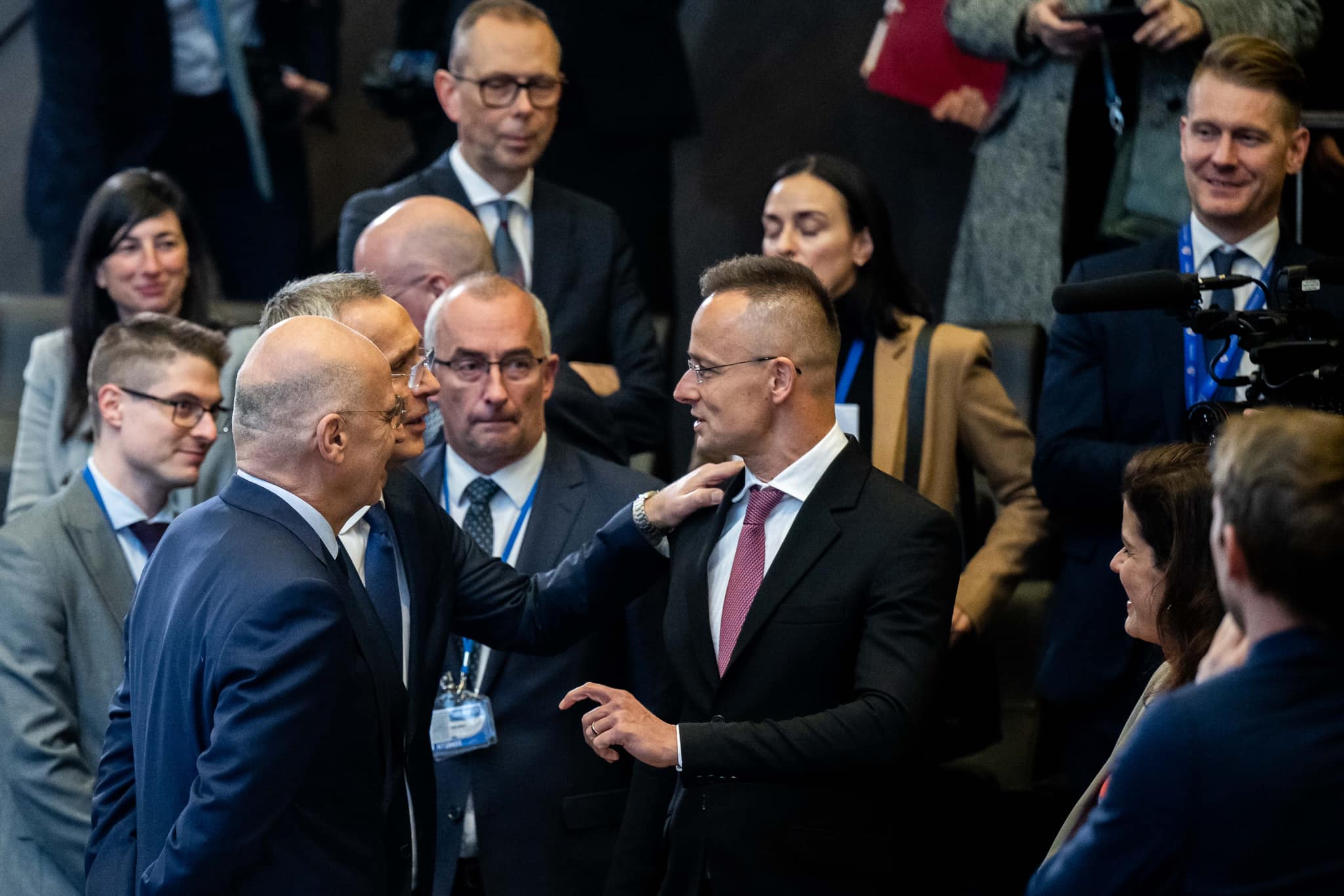Péter Szijjártó, Minister of Foreign Affairs and Trade, said the war in Ukraine has precipitated the emergence of divisive factions, “which is especially bad news for central Europe since the region has always lost out whenever there was a conflict between East and West.”
After a meeting of NATO counterparts in Brussels, referring to China’s peace plan for Ukraine, the foreign minister said the plan may provide a suitable starting point for international negotiations. “The sooner a ceasefire and the sooner peace talks begin, the more lives can be saved in Ukraine,” the minister said. Meanwhile, Minister Szijjártó said Hungary will meet its commitment to NATO this year, one year before the deadline, of boosting its defence spending to 2% of GDP. Hungary’s spending will even exceed 2% of its GDP, he told a press conference. Hungary is among nine NATO members meeting the 2% requirement this year, he added, dismissing “false accusations and doubts” regarding Hungary’s “commitment, reliability, and loyalty” to the alliance. Also, since 2019 Hungary has spent at least 20% of its defence budget on developments, he said, adding that 48% of spending last year was on capacity-building, putting Hungary in first place among the alliance’s 31 member states in this regard. Much of the spending is linked to big domestic defence industry investments, the minister said. Regarding preparations for NATO’s summer summit in Vilnius, Minister Szijjártó insisted that challenges facing Europe from the south connected with migration pressure must be addressed there, and he noted the heightened opportunity for terrorist infiltration that mass migration offered. Referring to the war in Ukraine, he said the war had highlighted how easily food supply could be disrupted around the world, leading to acts of violence and the spread of extremist ideologies. Alongside Turkish and several other counterparts, mainly from southern Europe, they agreed that at the next summit, NATO should deal with mounting terrorist threats and security challenges deriving from the south, Szijjártó said. He underlined that NATO is not a party to the war in Ukraine, and this principle should continue to be respected. Everything should be done to prevent any possible direct NATO-Russia confrontation, he added.
Péter Szijjártó, Minister of Foreign Affairs and Trade, said the decision to invite Ukraine to a meeting of NATO foreign ministers undermines the principle of the alliance’s unity, adding that Hungary would only support its north-eastern neighbor’s aspirations for integration if it restored the rights of its Hungarian minority.
“Hungary has come here in the hopes that nobody will question the validity of the alliance’s earlier decision declaring that NATO would not be a party to the war going on in our neighboring country and that everything must be done in order to prevent a direct conflict between NATO and Russia,” Minister Szijjártó said on Facebook ahead of the meeting. He said the decision to invite Ukraine’s foreign minister undermined the principle of unity within NATO, adding that in spite of this, Hungary was attending the meeting “in the spirit of being constructive”. The minister said he would make it clear that Hungary would only support Ukraine’s aspirations for any kind of integration on the condition that it restored the rights held by its ethnic Hungarian community before 2015.
Péter Szijjártó, Minister of Foreign Affairs and Trade, said NATO should not become anti-China. After a meeting of NATO foreign ministers, Ministern Szijjártó said mutually beneficial cooperation was preferable to rivalry. “We haven’t entered, neither do we want to enter competition between China and Europe or China and Hungary,” Minister Szijjártó told a press conference. He said relations should not be spoken of in military terms. Mutually beneficial cooperation should embrace “the automotive revolution”, he said, noting that European manufacturers had become dependent on South Korean and Chinese batteries. Minister Szijjártó said political decisions had been made in Brussels regarding the car industry, vital to Europe’s economic future, in the direction of the industry’s radical renewal. “There are too many interests by now for this transition not to be successful,” he said. While developments for manufacturing electric cars went ahead in Europe, politicians forgot to create battery production capacities, which are largely owned by Chinese companies, he said. “So, anyone advocating the separation of the Chinese and European economies risks landing a massive blow to the European economy,” he said.
(About Hungary)

